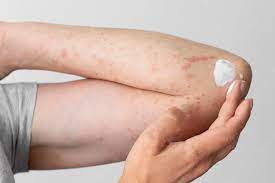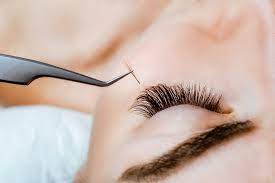Boston Terriers are truly adorable dogs, but they also come with a few unavoidable skin allergies. If you or your Boston Terrier is allergic to things like dust mites, dander, and wool, you’ll need to take some precautions to keep your dog comfortable. Here are some tips to help reduce your Boston Terrier’s allergy symptoms.

What are the most common skin allergies in Boston Terriers?
Boston Terriers are one of the most popular dog breeds in the world, but they also have one of the highest rates of skin allergies. This is because Boston Terriers have a lot of fur, which can create a lot of friction and lead to skin allergies.
The most common types of skin allergies in Boston Terriers are atopic dermatitis (AD) and seborrheic dermatitis (SD). AD is an allergic response that causes inflammation and redness on the skin. SD is an allergic response that causes crusty patches on the skin. Both conditions can cause problems with breathing, as well as itchiness and pain.
If your Boston Terrier has any symptoms of skin allergies, it’s important to get them checked out by a veterinarian. The vet can determine which type of allergy your Boston Terrier has and recommend treatments.
How to reduce your Boston Terrier’s risk of developing skin allergies?
Boston Terriers are one of the most popular dog breeds in the world. They’re adorable, playful and loyal companions. But like all dogs, Boston Terriers can develop skin allergies.
If you’re concerned about your Boston Terrier’s risk of developing skin allergies, there are some steps you can take to reduce that risk. First, be sure to keep your Boston Terriervaccinated against common canine diseases like leptospirosis and canine parvovirus. These vaccinations will help protect your Boston Terrier against a number of health problems, including skin allergies.
In addition, keep your Boston Terrier clean. Bathing your Boston Terrier regularly will help reduce the amount of allergens on his body. And make sure to use a good pet allergy pet shampoo and conditioner when bathing your Boston Terrier. Finally, feed your Boston Terrier a high-quality diet that is free of allergens. This will help reduce the amount of allergens your Boston Terrier’s intestines can absorb.
If you’re concerned about your Boston Terrier’s risk of developing skin allergies, be sure to check with your veterinarian about what steps you can take to reduce that risk.
Foods that trigger skin allergies in Boston Terriers
Boston Terriers are prone to skin allergies due to their dander, which is the dried fluff that covers their body and is made up of dead skin cells and other debris. Some of the foods that can trigger skin allergies in Boston Terriers include eggs, wheat, corn, milk, soy, tree nuts (including almonds), and peanuts. If your Boston Terrier is allergic to one of these foods, it’s important to keep him or her away from those items and avoid feeding them in general.
Tips for preventing skin allergies in Boston Terriers
Boston Terriers are known for their soft, fluffy coats, but this doesn’t mean they don’t have any skin allergies. In fact, Boston Terriers are one of the breeds most likely to develop skin allergies. Thankfully, there are some steps you can take to help prevent your Boston Terrier from developing allergic reactions to the environment.
First and foremost, keep your Boston Terrier clean. Not only will this help keep them healthy overall, but it will also help reduce their risk of developing skin allergies. Make sure to bathe them regularly and rinse them well after playing in the dirt or playing in water. Also make sure they have plenty of good quality dog food that is free of grains and other allergens. If you find that your Boston Terrier is constantly scratching or has other signs of skin allergy, talk to your vet about possible treatments.
Another important step you can take to reduce your Boston Terrier’s risk of developing skin allergies is to Immunize them against specific allergens. Immunization is a way of giving your Boston Terrier a “boost” of immunity against specific allergens, so it’s important to get it done as soon
Types of Boston Terrier Skin Allergies
Boston terriers are known for their cute, furry noses and ears, but some owners may not be aware that these dogs can also have allergies. Boston terriers are susceptible to a few different types of skin allergies, including hives, atopic dermatitis, and contact dermatitis.
If you notice your Boston terrier has an itchy or blistering skin condition, it’s important to get him checked out by a veterinarian. While there’s no cure for Boston terrier skin allergies, treatments can help ease the symptoms and improve your dog’s quality of life.
Symptoms of Boston Terrier Skin Allergies
Boston terriers are known for their wagging tails and friendly personalities, but many owners are not aware that these furry friends can also suffer from skin allergies. Boston terriers are prone to certain types of skin allergies, including atopic dermatitis (AD), which is an inflammation of the skin that can occur in any breed of dog. AD is a common condition in Boston terriers and other breeds of dog with thick coats of fur, as the fur traps moisture and oil, which then causes the skin to become inflamed. Signs of AD in a Boston terrier may include redness, itchiness, scratching, scaling, and discharge. If you notice one or more of these signs in your Boston terrier, it is important to seek veterinary care as soon as possible. Boston terriers are also susceptible to other types of allergies, such as food allergies and environmental allergies. If your Boston terrier is experiencing any signs or symptoms associated with an allergy, be sure to bring them to your veterinarian for a checkup.
How to Treat Boston Terrier Skin Allergies
If you have a Boston Terrier that is suffering from skin allergies, there are several things you can do to help him feel better. Consult your veterinarian to see if there is anything he can do to relieve the allergy symptoms, and always use caution when choosing dog-related items for your Boston Terrier to avoid triggering his allergies. Here are some tips on how to treat Boston Terrier skin allergies yourself:
1. Keep your Boston Terrier away from any dog allergens. This includes things like dander, fur, and saliva. If you must bring your Boston Terrier near other dogs, make sure that he is regularly groomed and has no dander or fur on him.
2. Try an all-natural approach to treating Boston Terrier skin allergies. Many people choose to supplement their dog’s diet with garlic supplements or omega-3 fatty acids in order to help reduce the risk of additional medication being needed in the future. Garlic is also thought to have anti-allergic properties.
3. Apply a topical cream or medication as needed to relieve symptoms of an allergy attack. Topical medications include corticosteroids, antihistamines, and desensitizing creams. Be sure to
What are the most common Boston terrier skin allergies?
The most common Boston terrier skin allergies are to grass, trees, and other plants. Other common Boston terrier skin allergies include food allergies, flea allergies, and environmental allergies.
What to do if your Boston terrier has a skin allergy
If your Boston terrier has a skin allergy, there are a few things you can do to help relieve his symptoms. First, you should try to keep him as comfortable as possible. This means providing him with plenty of rest and plenty of shade from the sun. Make sure that he is also regularly groomed so that any pollen or other allergens on his fur are removed. If his skin allergy is severe, you may need to take him to see a veterinarian for treatment.
How to prevent your Boston terrier from getting skin allergies in the future
Boston terriers are known for their cute, wagging tails, friendly personalities and fluffy coats. However, like many other breeds of dog, Boston terriers can also suffer from skin allergies.
If you’re worried about your Boston terrier’s potential for developing skin allergies in the future, read on for some tips on how to keep your pet safe from allergic reactions.
When it comes to preventing skin allergies in Boston terriers, it’s important to understand that the condition is often hereditary. If one of your dog’s parents suffered from allergic reactions, your pet is likely to do the same. Therefore, it’s important to keep a close eye on your Boston terrier’s health both physically and emotionally and take any signs of allergy seriously.
Here are some tips to help you monitor your Boston terrier’s allergy symptoms and keep them safe from developing into full-blown skin allergies:
– Educate yourself and always be up-to-date on the latest allergy news and trends. This will help you better understand which foods or environmental exposures may be triggering your Boston terrier’s symptoms.
– Keep your Boston terrier’s coat clean and free of
What are the most common Boston Terrier skin allergies?
The most common Boston Terrier skin allergies are to fleas, cats, and dust mites.
How to treat Boston Terrier skin allergies?
If your Boston Terrier is suffering from skin allergies, there are a few things you can do to help alleviate the condition. First, make sure you keep your Boston Terrier clean and free of allergens. This means taking him for regular baths and grooming sessions, using a special dog shampoo and getting rid of all the pet dander and other allergens that can cause skin irritation. If spraying medications onto your Boston Terrier’s skin is causing him distress, consider using natural approaches such as home remedies or over-the-counter medications that are safe for dogs.
Tips for keeping your Boston Terrier healthy and allergy free
One of the most common problems faced by Boston Terriers is allergies. While this may seem like a problem only experienced by those with sensitive skin, in fact, allergies are extremely common in Boston Terriers. In fact, up to eighty-five percent of Boston Terrier owners will suffer from some form of allergy.
There are a few things that you can do to help keep your Boston Terrier healthy and allergy free. First and foremost, make sure that you are keeping their environment clean and free of allergens. This means that you should regularly clean their litter box, remove any pet dander and hair from the home, and vacuum regularly. You should also keep an eye out for any potential allergens in their food and water. If you notice that your Boston Terrier is having trouble breathing or having a reaction to something they’re eating or drinking, then it’s time to take them to the vet for further diagnosis and treatment.
While there isn’t always a cure for allergies in Boston Terriers, following these tips will help you keep your furry friend healthy and allergy free.
What are the signs of a Boston Terrier skin allergy?
Boston Terrier skin allergies are an allergic reaction to proteins found in the skin of Boston Terriers. Symptoms usually appear within minutes after contact with the allergen and can include a rash, itching, and sneezing. If left untreated, Boston Terrier skin allergies can lead to more serious complications, such as asthma or even anaphylactic shock. If you notice any of the following signs in your Boston Terrier, it’s important to consult your veterinarian immediately:
-A persistent rash on the dog’s face, body, or tail
-Excessive scratching of the skin
-Wheezing or difficulty breathing due to asthma
How to reduce the risk of developing a Boston Terrier skin allergy?
One of the most common problems that Boston Terriers face is skin allergies. While there is no way to completely prevent a Boston Terrier from developing a skin allergy, there are ways that you can reduce the risk. Here are some tips:
– keep your Boston Terrier’s coat clean and free of allergens. This includes giving them a good bath every week and brushing their hair regularly. If you have a dog that you board, be sure to ask the boarding facility about their policies on keeping dogs clean.
– avoid exposing your Boston Terrier to any known allergens, such as grass, trees, pet dander, etc. When you take your Boston Terrier for a walk outside, be sure to take along an identification tag and keep an eye on what they’re eating and playing with while out in the open.
– if your Boston Terrier does develop a skin allergy, make sure to get them professional treatment right away. This may include using antihistamines or corticosteroids injections.
Ways to treat a Boston Terrier skin allergy?
Boston Terrier skin allergies are a common problem that can cause irritation and inflammation. There are a number of ways to treat a Boston Terrier skin allergy, but the most important thing is to identify the cause and treat it appropriately.
Here are some tips for treating Boston Terrier skin allergies:
-Avoid contact with the allergen. If you think your Boston Terrier is allergic to something, keep him away from that area and try to avoid contact with the allergen. This may mean keeping your Boston Terrier in a separate room or even at home if you can’t avoid contact.
-Use topical treatments. Topical treatments include creams, ointments, and powders that can be applied to the affected area. These treatments tend to be more effective than oral medications, but they also have some side effects. Talk to your veterinarian about which treatment is best for your Boston Terrier.
-Use oral medications. Oral medications such as antihistamines can be effective at reducing symptoms of a Boston Terrier skin allergy. However, these medications have side effects, so it’s important to discuss them with your veterinarian before using them.
Conclusion
In case you haven’t noticed, Boston terriers are among the most popular dog breeds out there. This is likely because they have a lot of personality and are very easy to care for. However, like with any other type of pet, owning a Boston terrier comes with its own set of responsibilities. One of these responsibilities is ensuring that your Boston terrier doesn’t suffer from any allergies. If your Boston terrier has skin allergies, then you need to take precautions to ensure that he or she stays healthy and allergy-free. Here are some tips on how you can do this:










